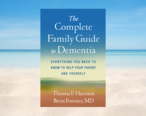10 Signs of Mental Decline
Changes in mental health for a spouse or loved one are often gradual. Don't let a diagnosis take you by surprise—use this list of 10 easy-to-check items to give yourself a reference point about whether you may need to seek additional help.

It only takes a moment to appreciate the older members of your family. Seeing them in-person is a chance to reconnect and to get a sense of any changes in their lives. A brief stop by their home can also be helpful to understand if their care needs may have changed since the last time you saw them. As a simple, non-comprehensive tool, use this checklist to help assess change and consider taking a more in-depth caregiving needs assessment or contact a Family Advisor using this form.
Here are the 10 things to check for or do when you suspect a loved one's mental faculties may be declining:
- Stop, look, and take note. Don’t jump to conclusions immediately. You're just gathering information to pass to a more qualified assessor or provider. Remember, nothing here is surefire evidence.
- Ask yourself: What’s different here? How does the house look? Is it messy? Lots of undone laundry? Has the trash gone out in a timely manner since the last time you were there?
- Is your loved one eating too little or too much? Check out the fridge. Are there spoiled or outdated food items? Or is there nothing at all except for mustard and ketchup? These can be signs that they're either forgetting to eat the food they get for themselves or forgetting to shop at the store.
- Medications—more, less, or none at all? Medication adherence is important for chronic conditions, so you should check: Are the medications being taken? Are they being taken correctly? Are they refilling prescriptions in a timely manner?
- Is the house safe for walking around? Even if there are no signs of mental decline, physical decline caused by a fall can lead to mental decline. While you're there, check for mobility issues or fall risks, including:
- Are there too many loose area rugs that can cause sliding and falls?
- Are there grab bars in the shower and bathroom?
- Is there wall or furniture walking (leaning on a wall or piece of furniture to maintain balance)?
- Frequent sitting down and resting?
- How does the car look? Is the inside of the car littered with bags, debris, or cups? Is there visible damage on the outside of the car?
- Is regular mail or voicemail piling up? Ask if there’s a difficulty with retrieving messages or opening and reading the mail.
- Talk to the neighbors. They're your eyes-and-ears when you're not there. Have they noticed anything different? Routines or habits that they no longer do?
- Talk to your loved one. Is the way that you talk to each other different? Do they repeat the same topics multiple times?
- What about their pets? If there’s a pet in the house, is it being cared for daily? Is it being over- or under-fed? Is the litterbox or dog waste piling up?














Hording is not mental illness, but a collection of treasures with possibilities for greater use.
This is exactly what one sees for a hoarder. Hoarding is absolutely a mental health issue.
The tone and language of this article is disturbing. Anyone with wits and common sense can discern if something is amiss or not. It sounds like you're training social workers/cops.
These are also signs of depression